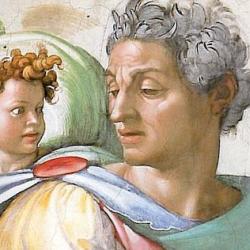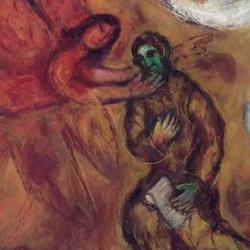INTRODUCTION
Jerusalem, the Daughter and Bride of Yahweh, has become a harlot (Isaiah 1:21). But Yahweh promises to purify her with fire, and raise her up as the chief of the world’s cities (2:1-4).
THE TEXT
“How the faithful city has become a harlot! It was full of justice; righteousness lodged in it, but now murderers. Your silver has become dross, your wine mixed with water . . . .(Isaiah 1:21-2:4).
HARLOTRY
Prostitution in the Bible is typically an image of idolatry: Israel, Yahweh’s Bride, throws herself at other “husbands” (cf. Judges 2:17; 1 Chronicles 5:25; 2 Chronicles 21:11-13; Psalm 106:39; Jeremiah 2:20-25; Ezekiel 16:15-29; Hosea 4:7-19). Isaiah mentions idolatry (1:29-30), but mainly keeps his focus on social and legal sins. The “harlot city” is contrasted to “justice” (1:21), and the specific evils of Jerusalem include murder (1:21), rebellious rulers (1:23), bribery (1:22), and the failure to defend the powerless and poor (1:23). For Isaiah, as for all the prophets, idolatry and injustice go hand in hand.
SMELTING DROSS
Once a city of silver, Jerusalem has become a city mixed with dross (1:22); Jerusalem’s wine has been diluted with water (1:22). It is possible that “your silver has become dross” is literal: Jerusalem’s currency has been diluted with base metals, another form of injustice (cf. Leviticus 19:36; Deuteronomy 25:13; Proverbs 16:11; Micah 6:11). In verse 25, Isaiah employs the statement as an image of the tarnishing of Jerusalem’s faithfulness. Yahweh is coming in fire. According to the law, a priest’s daughter who plays the harlot has to be burned (Leviticus 21:9). Yahweh’s own daughter, Jerusalem, will also be destroyed by fire (cf. Revelation 17-18). That fire will not only relieve Yahweh of His adversaries (1:24 ), but will also purge away Jerusalem’s wickedness. Through the purging fire, Yahweh will restore faithful judges and make Jerusalem a “city of righteousness” (1:26).
OAKS AND GARDENS
We usually associated redemption with mercy, but Isaiah says that Zion will be redeemed with “judgment” and “righteousness” (1:27). In the law, firstborn donkeys and children had to be “redeemed” with a lamb, just as Yahweh had “redeemed” the firstborn from Egypt (Exodus 13:13-15; cf. Exodus 34:20; Leviticus 27:27-29). Yahweh buys back Zion with righteousness. Oak trees are ladders to heaven where Judah offered worship to idols (Deuteronomy 12:2; 2 Kings 16:4; 17:10), the places where harlot Jerusalem met her clients (Jeremiah 2:20). “Garden” here refers to the groves of idolatrous worship. Instead of being a tree whose leaf never withers (cf. Psalm 1), Judah will be an oak whose leaves fade; instead of being a well-watered Eden, Judah will dry up (Isaiah 1:30). Once Zion is dried up, Yahweh’s fire will burn so that no one can quench (1:31).
CHIEF OF THE MOUNTAINS
The goal of Yahweh’s judgment is not to destroy Zion but to renew her. After purging His people, Yahweh will raise up Mount Zion as chief of the mountains. As rivers once flowed out of Eden, so the law will flow from Zion, and as a result rivers of nations will flow to Zion for worship and instruction. Yahweh will teach them Himself, and the nations will turn from war to peace (Isaiah 2:1-4). When Zion is judged and restored, she will fulfill the Abrahamic promise to bless al the families of the earth.










